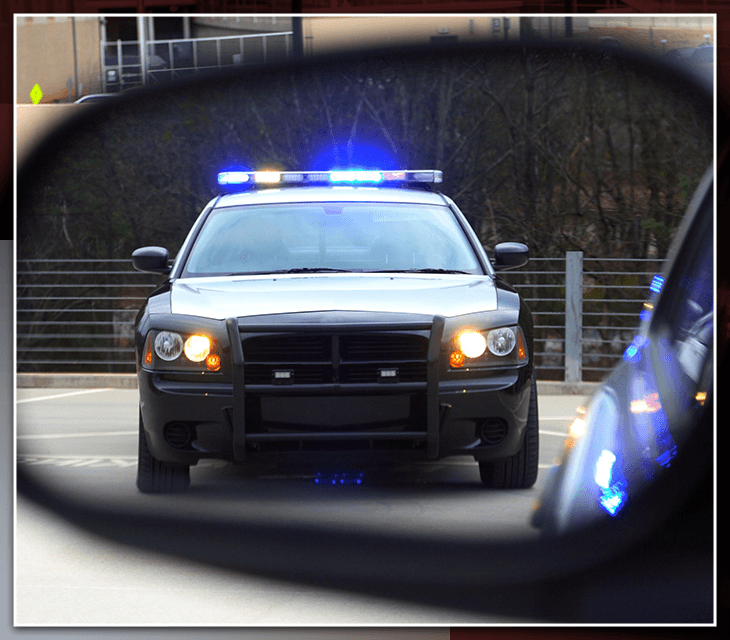
Drunk Driving Defense, DUI Arrest - FAQ's
The 20 most frequently asked questions by individuals involved with a DUI or a marijuana DUI case. Click on the links to view Mr. Taylor’s answers and/or recommendations. (The information provided here by the DUI defense firm has been referenced or linked to by more than 400 websites worldwide.)
For further information, see Lawrence Taylor’s DUI blog, the most popular DUI site on the internet.


Drunk Driving Arrest
FREQUENTLY ASKED QUESTIONS
-
What patterns do police officers look for when searching for intoxicated drivers on the road?
The following list, from most likely sign to least likely sign, is the possible signs of a drunken driver. This list was developed by the National Highway Traffic Administration:
- Negotiating a wide turn
- Straddling along the central marker between the lanes
Appearing to be drunk
- Near misses or hitting another vehicle or object
- Weaving between lanes
- Driving off of designated highway
- Swerving within the lane lines
- Speeding over 10 mph above the designated speed limit
- Questionable stops in traffic lanes
- Tailgating
- Drifting
- Driving over the center marker between lanes
- Excessive braking
- Driving against traffic
- Questionable signaling
- Delayed reaction to traffic signals
- Inappropriate stopping or slowing
- Illegal or unwarranted turns
- Accelerating or slowing down quickly
- Driving without headlights on
-
When a police officer pulls me over and asks if I have been drinking, how should I answer him?By law, a person is not obligated to respond to inquiries that might implicate them in wrongdoing. They have the right to request legal representation before providing any answers. Acknowledging that you have consumed alcohol places you in a potentially risky situation.
-
Do I have a right to an attorney while taking a field sobriety test?The right to an attorney is not applicable until the individual has been provided the chance to undergo a breath or blood test, or until a decision is made to decline participation in a chemical test.
-
What physical and behavioral symptoms does an office look for when he first pulls me over?
Police officers are trained to looks for specific signs:
- A flushed, or red, face
- Red, watery, glassy and/or bloodshot eyes
- Alcohol breath
- Incoherent or slurred speech
- Struggling to retrieve their license from a wallet
- Inability to comprehend the officer’s questions
- Difficulty when exiting the vehicle
- Unable to stay balanced while standing
- Using the vehicle for stand support
- Aggressive or other
inappropriate
attitude - Soiled, rumpled, disorderly clothing
- Inability to keep balance while walking
- No knowledge of time or current location
- Inability to comprehend and/or follow directions
-
If a police office asks me to take a field sobriety test, what should I do?
The police officer can choose from several test options, with the most common being:
- Finger-to-nose
- Horizontal gaze nystagmus (HGN)
- Heel-to-toe walk
- Reciting of the alphabet
- Hand pat
- Fingers-to-thumb
- One-leg-stand
- Modified position of attention (the Rhomberg test)
It's likely that the officer has already made a judgment and decision to arrest before requesting a field sobriety test (FST). When the suspect fails, it serves as validation for the officer and additional evidence. Unlike chemical tests, refusing to take an FST typically doesn't result in legal penalties. Politely declining the FST is a valid option for the suspect to consider.
Studies funded by the National Highway Traffic Safety Administration have concluded that only three of these tests are reliable in determining if a driver is intoxicated: Heel-to-toe, one-leg-stand, and the horizontal gaze nystagmus test. These three tests use numerical scores that are specific to the suspect’s actions. The study also concluded that the other FSTs are unreliable and should be discouraged from being used.
-
When a police officer asks me to follow a pen light what does he look for?
This test is called the horizontal gaze nystagmus (HGN) test. Nystagmus is the medical term that describes a particular eye oscillation. The steadiness of the eyes while following the pen and the degree at which the eyes begin to move erratically indicate the level of alcohol in the blood of the suspect. The police officer attempts to determine if the angle of the eyes is less than 45 degrees. An angle of less than 45 generally indicates a blood-alcohol level of .05% or greater.
The horizontal gaze nystagmus test is still fairly new and has not been accepted for use in many states. Many medical professionals do not consider this test to be credible. It is also possible that some police officers performing this test are not qualified to administer the test. The untrained officer may not be able to negotiate the proper angle and hence misjudge nystagmus. Although approved in other states, this test is not accepted for use in California.
-
What would happen if I refused to take the chemical test?
There are several penalties when an individual refuses to take one of the chemical tests:
- The suspect will receive a 1-year suspension of their license instead of the 4-month suspension. If it was the second offense within the last ten years, the license suspension will be two years. A work-restriction license option is available for those found guilty of driving under the influence, but that option will not be available if there was a refusal to take a chemical test.
- There is a mandatory jail sentence if the chemical test refusal was written in the complaint against the individual.
- The court and jury may see a refusal of a chemical test as a consciousness of guilt. Your defense could try other possibilities, such as a fear of needles or an inability to register on the breathalyzer.
You can refuse to take the chemical test, but you must be aware of the heightened penalties you may receive for doing so.
-
Can I choose which chemical test I can take?
In California, the preferred options are typically the breath and blood tests for determining intoxication levels. If a breath or blood sample is unavailable, or if there is a suspicion of drug use, a urine test may be administered as an alternative. It's worth noting that some officers may not inform suspects that they have the option to undergo a blood test even after providing a breath sample.
Blood tests are the most accurate of the chemical tests. The technology used in the breathalyzer is known for its flaws and errors that create inaccurate test results. The urine test is the least accurate of the choices.
-
If I am not advised of my Miranda warning by the officer, can my case be dismissed?
Your case cannot be dismissed on this basis. Although police officers are obligated to inform you of the 5th Amendment, this requirement may not occur until after an arrest has been made. Unfortunately, this obligation is occasionally overlooked by the arresting officer.
Similar issues arise when suspects are not apprised of their rights regarding chemical testing. California has an implied consent law that addresses a suspect's legal obligation to consent to a chemical test and outlines penalties for refusal. It's crucial for the suspect to be aware of this regulation, as it can impact the duration of the suspension of their driver's license.
-
What offenses can I be charged with?
The traditional charge is known by one of these terms:
- DUI – driving under the influence
- OWI – operating while intoxicated
- DWI – driving while intoxicated
Along with California, 48 of the 50 states have adopted a second charge known as the
per se
offense. Theper se
offense is defined as driving with an excessive BAC (that of .08% or greater). The defendant can, and usually will, be charged with both offenses. The individual, however, will only receive penalties for one of the charges.Should the suspect refuse to take a chemical test, only the first offense will be charged due to a lack of evidence on the
per se
charge. -
Am I allowed to represent myself during proceedings? How does retaining an attorney help me?
The charges involved in drunken driving are a complex subject and can be difficult to follow. The penalties are becoming gradually more severe and dealing with a case includes a range of administrative license, sentencing, evidentiary, constitutional, and procedural affairs.
A general attorney will have little to offer or possibly even hurt your case because they are generally unqualified or inexperienced in such a particular field. Comparing a general attorney to a DUI defense attorney is much like comparing a family practitioner to a brain surgeon.
A qualified DUI lawyer can do several things to help improve your situation. A DUI attorney knows many of the particulars involved and can request measurements and maintenance records of the breath machine and have blood samples reanalyzed. They can also challenge evidence, look for possible flaws in the case, negotiate reduced penalties and sentences, contest the administrative license suspension, or obtain expert witnesses for the case.
An experienced DUI attorney can be very beneficial to you with your case.
-
I am looking for an experience DUI lawyer. How do I find one?
The ideal method to measure a qualified DUI attorney is through their reputation. One way to determine this is simply by asking lawyers in the local area who they believe are the most qualified in DUI defense. You can also visit courthouses and ask clerks, bailiffs, and public defenders the same question: Which DUI attorney would they recommend?
The highest recognition DUI lawyers can receive is ABA-approved board certification by the National College for DUI Defense. This certification shows an exceptionally high level of experience, knowledge, and ability. There are currently only five ABA-NCDD board-certified DUI attorneys in California; Mr. Taylor is one of them.
Generally speaking, you should seek attorneys who have excellent reputations, extensive experience, and specialization in DUI defense. Conversely, it is wise to avoid attorneys who:
- Have graduated from unaccredited colleges and law schools.
- Have little experience as an attorney or in the DUI field.
- Attempt to represent clients charged with a wide range of criminal offenses rather than focusing on DUI defense.
- Make promises as to results ("I can get the charges reduced to reckless driving and get your license back"); this is both unethical and virtually impossible to predict. If you ask the attorney to put the promise in writing, he will refuse.
It is not recommended to seek out a referral from the local Bar Association or a referral service. These services usually work off a list and just offer you the next lawyer on the list. The problem with this strategy is that there are very few skills or requirements necessary to have in order to be put on this list. All an attorney has to do is request to be put on the list.
At the Law Offices of Taylor & Taylor, we pride ourselves on offering value — providing the highest quality representation at a competitive cost. Our fees are reasonable and do not involve any hidden additional charges. Credit cards are readily accepted, and payment plans are available. Please feel free to contact us at any time to discuss fees without any obligation or cost. We look forward to serving you and helping you through this difficult time.
-
What are the penalties for a DUI conviction?
There are many different factors involved in each case. A definitive answer to this question is not simple. While the particulars of cases and penalties differ from court to court, a first offense (with no “enhancements”) will include these penalties:
- A fine of approximately $1,700
- 3, 6, or 9 months of enrollment and attendance in a DUI class
- Probation up to three years
- 90-day license restriction (Note: this is in addition to the DMV suspension you may receive)
- A jail sentence of 4 days to 6 months.
Second and subsequent offenses will trigger longer jail terms and longer license suspensions or revocations. Additional penalties include community service, AA meetings, and ignition interlock devices.
-
What is a sentence enhancement?
When certain pieces of evidence exist in a case, California law requires an elevated penalty. Examples of the more common occurrences can be found below. The evidence must be stated in the complaint for the enhanced sentence to occur. The most common sentence enhancer is a previous DUI conviction or similar offense within 10 years of the new charge.
The more common occurrences:
- The suspect was driving 20 MPH above the posted speed limit
- A child was present in the vehicle
- Personal injury or property damage occurred
- The suspect refused chemical testing
- The suspect’s blood-alcohol concentration was over .20%
- The suspect is under 21 years old (the
zero tolerance
laws in California usually charge the suspect with a much longer license suspension and require a lower BAC)
The DUI will be elevated to a felony if there was personal injury to another caused by the suspect. If a death occurs, the charge could be elevated to manslaughter or even murder, when special circumstances exist.
-
What is it meant by a rising BAC defense?
In the state of California, it is against the law to have a BAC over the .08% limit while driving, not at the time the chemical test is given. Studies have shown that it can take the human body anywhere between 30 minutes and 3 hours for the alcohol to be absorbed. It is conceivable that an individual’s BAC could rise after he was stopped and arrested.
The time elapsed between when the suspect is arrested and when the chemical test is administered is approximately an hour. The test could show a level of .10% but because the alcohol was being absorbed, it could have been .07% while the suspect was driving. The suspect's true BAC while driving was within the legal limits, even though the test results showed an illegal level.
-
What is it meant by mouth alcohol?
The term “mouth alcohol” refers to the presence of alcohol in the mouth. A breath test result will show higher-than-normal results if the suspect has mouth alcohol. The breathalyzer uses a complex formula that takes the amount of alcohol and multiplies it by 2100 to get its results. The machine assumes the breath starts from the lungs. Factors such as these can create discrepancies in test results.
There are other potential reasons for having mouth alcohol:
- Breath fresheners do have trace amounts of alcohol. Products such as Listerine and Binaca contain small levels of alcohol and can certainly affect breath test results. Cough medicines such as NyQuil also contain alcohol and can affect test results in the same way.
- Bodily functions such as hiccups, burps, or even vomiting can also affect the test results. Actions such as these bring the vapors of alcohol from the stomach back up to the mouth.
- A hiatal hernia can also cause elevated test results.
- Dental caps and bridges can capture alcohol in a crevice and be blown out by a breath.
- If the suspect has a chronic reflux condition, alcohol can travel up from gastric distress.
-
What types of defense options do I have for my DUI case?
Each case has its own intricacies and its own unique variables; thus, the defenses are nearly unlimited. It is feasible to categorize some of the defenses into specific areas:
- Probable cause: The officer needs a valid reason to stop, detain, or arrest a suspect. Sobriety checkpoints do cause several complicated issues with probable cause.
- The Miranda warning: If the Miranda warning was not given at the proper time, any incriminating statements made by the individual can be denied.
- Chemical tests taken during the absorptive phase: The notion of
drinking one for the road
can create inaccurate results with the breath tests. It takes the body anywhere from 30 minutes to 3 hours to fully absorb alcohol into the system. Any chemical testing done during this time may not be accurate. Food in the stomach can elongate the absorptive phase. - Driving while intoxicated: This charge is often not satisfactory in DUI cases and can be difficult to prove. For example, if there was an accident where there were no witnesses present, the prosecution cannot prove the suspect was the driver.
- Field sobriety tests: Many of the FST results can be questioned, since the ultimate decision is left to the officer. What the officer observes and what he defines as failing can create a bias. Should there be any witnesses present, they can testify that the individual did not appear to be intoxicated.
- Regulation of chemical testing: The burden is on the prosecution to prove that all instruments used for chemical testing have met all state requirements. This includes maintenance and calibration.
- Retrograde extrapolation: This term refers to the time requirement between the arrest and when the chemical test is administered. The BAC refers to the time the test was taken, not when the suspect was driving. Many physiological issues can occur.
- License suspension hearings: There are a number of issues that can be brought up during the administrative hearing with the DMV.
- Implied consent warnings: In California, along with several other states, the conditions under which the chemical test was given could affect its authenticity. Situations such as this can occur if the officer fails to inform the individual of the possible penalties for refusing a chemical test or if the Miranda warning was given improperly. This situation can also affect the administrative hearing with the DMV.
- Blood-alcohol concentration: There are a number of issues brought up with the chemical test. Most breathalyzers used by police agencies will record chemical compounds, other than alcohol, that can be found in the human body that can register as alcohol. There can be inaccurate results due to radio frequency interference as well. All breathalyzers use an assumption that there is a 2100:1 ratio when converting alcohol found in the breath compared to that found in the blood. This ratio is a generalization and in reality differs between individuals. These potential defects, along with several others, can be questioned when the defense is cross-examining expert witnesses. The defense can also hire their own expert witnesses to contest these issues as well.


